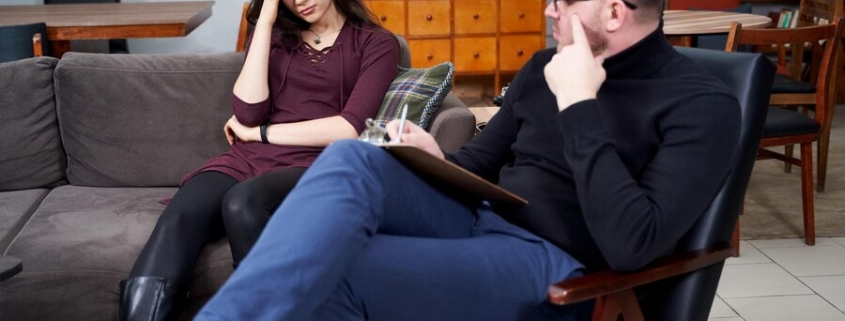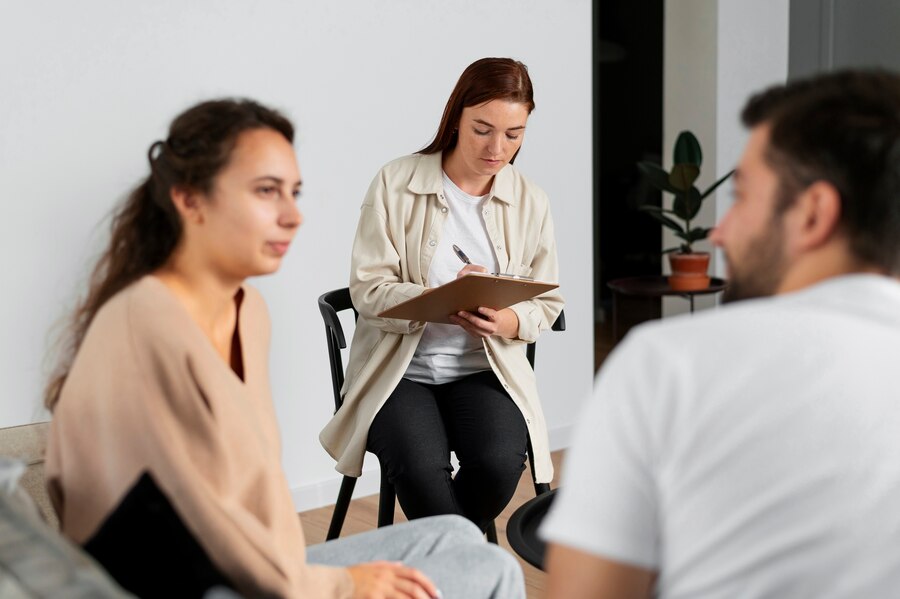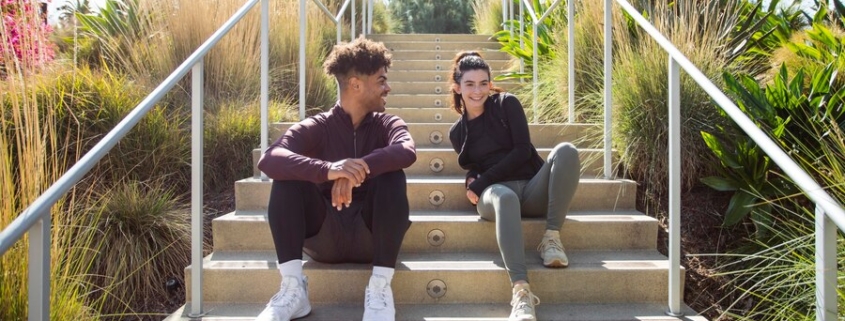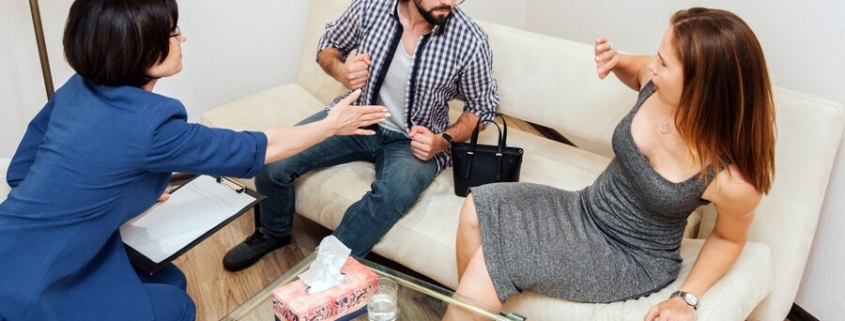The journey to recovery from addiction is a challenging path, often fraught with emotional, physical, and psychological hurdles. When couples embark on this journey together, the challenges can be both intensified and alleviated by the presence of a supportive partner. Couples rehab programs recognize the unique dynamics of relationships and aim to provide a holistic approach to recovery that addresses the needs of both individuals and their partnership. One crucial aspect of this approach is the incorporation of fun and meaningful activities designed to foster connection, reduce stress, and promote overall well-being.
Couples Rehab Services
Importance of Recreational Activities in Rehab
Rehabilitation, particularly for couples, is a multifaceted journey that involves more than just addressing physical dependencies or psychological struggles. Integrating recreational activities into the rehab process is essential, offering a holistic approach that fosters healing on multiple levels. Below, we delve into the key reasons why recreational activities hold profound importance in rehab settings.
Enhancing Emotional Bonds
One of the primary benefits of engaging in recreational activities during rehab is the enhancement of emotional bonds between partners. Shared experiences, particularly those that are enjoyable and fulfilling, create opportunities for couples to reconnect and strengthen their relationship. When couples participate in activities such as yoga or art classes together, they experience a sense of unity and cooperation. This shared participation can rekindle affection and understanding, helping partners to support each other more effectively through the rehabilitation process.
Reducing Stress and Anxiety
Rehabilitation can be an intensely stressful experience, laden with emotional and psychological challenges. Recreational activities serve as a vital outlet for couples to alleviate stress and anxiety. Activities such as meditation, Tai Chi, or even a simple nature walk can significantly reduce cortisol levels and promote a sense of calm. These activities not only provide mental relaxation but also offer a distraction from the rigors of rehab, allowing couples to find moments of peace and joy amidst their recovery journey.
C. Promoting Physical Health
Physical well-being is an indispensable aspect of recovery, and recreational activities play a crucial role in promoting this. Engaging in physical activities like hiking, dancing, or yoga helps improve cardiovascular health, flexibility, and overall fitness. For couples, participating in these activities together can also build a routine of healthy living that they can continue post-rehab. Moreover, the endorphins released during physical exercise contribute to improved mood and energy levels, further aiding in the recovery process.
Types of Activities Offered
In the supportive environment of a couples rehab, engaging in various activities can significantly bolster the recovery journey. These activities are meticulously designed to not only make the rehabilitation process enjoyable but also to provide therapeutic benefits. Let’s delve into some of the key activities offered:
Therapeutic Exercises
Therapeutic exercises are pivotal in fostering both mental and physical well-being. These exercises help couples reconnect with their bodies, reduce stress, and enhance emotional stability. Some of the prominent therapeutic exercises include:
- Yoga: Yoga is renowned for its ability to harmonize the mind, body, and spirit. Couples can participate in partner yoga sessions, which promote synchronization and mutual support. The gentle stretches and controlled breathing techniques help in alleviating anxiety and improving flexibility.
- Tai Chi: This ancient Chinese martial art focuses on slow, deliberate movements and deep breathing. Tai Chi sessions can aid in reducing stress, improving balance, and enhancing overall physical health. Participating as a couple can foster synchronized movements and deep emotional connections.
- Meditation: Meditation sessions allow couples to practice mindfulness and achieve a state of inner peace. Guided meditation can be particularly beneficial in helping couples manage stress and anxiety, fostering a sense of calm and clarity that supports their recovery journey.
Art and Music Therapy
Creative therapies like art and music can serve as powerful tools for emotional expression and healing. These therapies provide couples with the opportunity to explore their feelings and communicate in non-verbal ways.
- Painting: Engaging in painting sessions allows couples to express their emotions and thoughts visually. This creative outlet can help in processing complex feelings and fostering a deeper understanding of each other’s emotional landscapes.
- Music Sessions: Music therapy involves listening to, creating, or performing music. Couples can participate in joint music sessions, where they can play instruments, sing, or simply enjoy the therapeutic effects of music. This shared experience can enhance emotional bonds and provide a sense of joy and relaxation.
- Dance Classes: Dance is not only a fun activity but also a great way to improve physical fitness and coordination. Couples can take part in dance classes, which encourage physical closeness and synchronization, promoting trust and intimacy.
Outdoor Activities
Spending time in nature has numerous benefits for mental and physical health. Outdoor activities provide a refreshing change of scenery and an opportunity for couples to engage in healthy, enjoyable pursuits together.
- Hiking: Exploring nature trails and hiking together can be an invigorating experience. It promotes physical fitness, reduces stress, and offers a chance for couples to enjoy the beauty of nature together.
- Picnics: Organizing picnics in serene outdoor settings allows couples to relax and enjoy each other’s company in a peaceful environment. Sharing meals and engaging in light-hearted conversations can strengthen their bond.
- Gardening: Gardening can be a therapeutic and rewarding activity. Couples can work together to cultivate a garden, which not only provides a sense of accomplishment but also encourages teamwork and patience.

Benefits of Participating in Activities Together
Participating in activities together during rehab provides numerous advantages that extend beyond mere entertainment. These activities foster a supportive and nurturing environment, crucial for the recovery journey. Here are some key benefits:
Building Trust and Communication
One of the most significant benefits of couples engaging in activities together is the enhancement of trust and communication. Rehab can be a stressful and emotionally taxing experience, and engaging in shared activities offers couples a safe space to reconnect. Through cooperative exercises like partnered yoga or trust-building games, couples learn to rely on one another, thus strengthening their bond. Open communication during these activities helps in addressing unresolved issues, expressing emotions, and setting mutual goals, all of which are crucial for a successful recovery.
Creating Positive Memories
Creating positive memories is another essential benefit of shared activities in rehab. Often, couples enter rehab with a history of negative experiences and strained relationships. Fun and meaningful activities such as painting sessions, music therapy, or outdoor picnics provide opportunities to create new, joyful memories. These positive experiences can serve as a foundation for a healthier relationship dynamic moving forward. They replace past negative associations with positive ones, making the recovery process more enjoyable and less daunting.
Supporting Each Other’s Recovery
The journey to recovery is more manageable when shared with a supportive partner. Engaging in activities together allows couples to support each other in a tangible way. Whether it’s encouraging one another during a challenging hike or offering a listening ear during a meditation session, mutual support is invaluable. This shared commitment to recovery fosters a sense of unity and partnership. Couples who participate in these activities together often find that their mutual support accelerates their individual progress, making the overall rehab experience more effective.
Fun and Meaningful Activities for Couples in Rehab
Engaging in fun and meaningful activities during rehab is not just a supplementary aspect of recovery for couples; it is a fundamental component that can significantly enhance the overall rehabilitation experience. The structured yet enjoyable activities provided at Couples Rehab offer more than just a distraction from the challenges of recovery—they foster emotional bonds, reduce stress and anxiety, and promote physical well-being. Whether through therapeutic exercises like yoga and meditation, creative outlets like art and music therapy, or invigorating outdoor activities like hiking and gardening, each activity serves a distinct purpose in the journey towards healing.
Participation in these activities together allows couples to build trust and improve communication, which are crucial elements for a successful recovery. Creating positive memories through shared experiences further strengthens their relationship and provides a solid foundation for a life beyond rehab. Supporting each other through these activities not only aids individual recovery but also reinforces the commitment to a healthier, happier, and more connected life as a couple.
In summary, the activities offered at Couples Rehab are carefully curated to support the multifaceted needs of couples in recovery. By embracing these opportunities, couples can navigate the complexities of rehab with greater ease, emerging stronger and more united. The journey of recovery is undoubtedly challenging, but with the right activities and support, it can also be profoundly transformative and deeply rewarding.

FAQs
- Q: What are the benefits of incorporating fun and meaningful activities in couples rehab? A: Incorporating fun and meaningful activities in couples rehab can have numerous benefits. It helps couples strengthen their bond, improve communication skills, create positive memories, reduce stress, promote emotional healing, and enhance overall well-being during the recovery process.
- Q: What types of fun activities can couples engage in during rehab? A: Couples in rehab can engage in a variety of fun activities, such as outdoor adventures, art therapy sessions, cooking classes, couples yoga or meditation, hiking trips, equine therapy, and recreational sports. These activities promote teamwork, relaxation, and personal growth while fostering a sense of enjoyment and connection.
- Q: How can meaningful activities enhance the recovery journey for couples in rehab? A: Meaningful activities in rehab provide couples with opportunities to explore shared interests, values, and goals. Engaging in activities like volunteer work, journaling, couples counseling, relationship-building exercises, or attending educational workshops can strengthen their commitment to recovery and deepen their emotional connection.
- Q: Are there specific activities designed for couples in rehab? A: Yes, there are activities specifically designed for couples in rehab. These activities may include couples therapy sessions, relationship-building exercises, couples retreats, and workshops focused on communication, conflict resolution, and rebuilding trust. These activities aim to address the unique challenges faced by couples in recovery.
- Q: Can couples choose the activities they want to participate in during rehab? A: In many couples rehab programs, couples have the opportunity to choose and participate in activities that align with their interests and recovery goals. The rehab facility may provide a range of options, allowing couples to select activities that resonate with them and support their journey towards healing and sobriety.
- Q: How do fun and meaningful activities contribute to relapse prevention in couples rehab? A: Fun and meaningful activities in couples rehab help couples develop healthy coping mechanisms, reduce boredom and cravings, and provide alternative outlets for stress and emotions. By engaging in enjoyable and purposeful activities, couples can strengthen their commitment to recovery and reduce the risk of relapse.
- Q: Are there activities that can improve communication and trust in couples rehab? A: Yes, there are activities specifically designed to improve communication and trust in couples rehab. These activities may include couples therapy sessions, trust-building exercises, role-playing scenarios, and collaborative problem-solving activities. These activities promote open dialogue, active listening, and the development of effective communication skills.
- Q: Can couples continue to engage in these activities after completing rehab? A: Absolutely! Couples can continue to engage in fun and meaningful activities even after completing rehab. These activities can become a part of their ongoing recovery plan, helping to maintain their connection, strengthen their relationship, and support their continued growth in sobriety.
- How do fun and meaningful activities contribute to overall well-being in couples rehab? A: Fun and meaningful activities contribute to overall well-being in couples rehab by reducing stress, promoting positive emotions, fostering a sense of purpose and accomplishment, improving self-esteem, and enhancing the overall quality of life. These activities play a vital role in the holistic recovery process.
- Q: How can couples find rehab programs that offer fun and meaningful activities? A: Couples can find rehab programs that offer fun and meaningful activities by researching and contacting various couples rehab centers. Inquire about the specific activities and therapies they offer, and discuss your preferences and goals with the admissions team to find a program that aligns with your needs and interests.
















